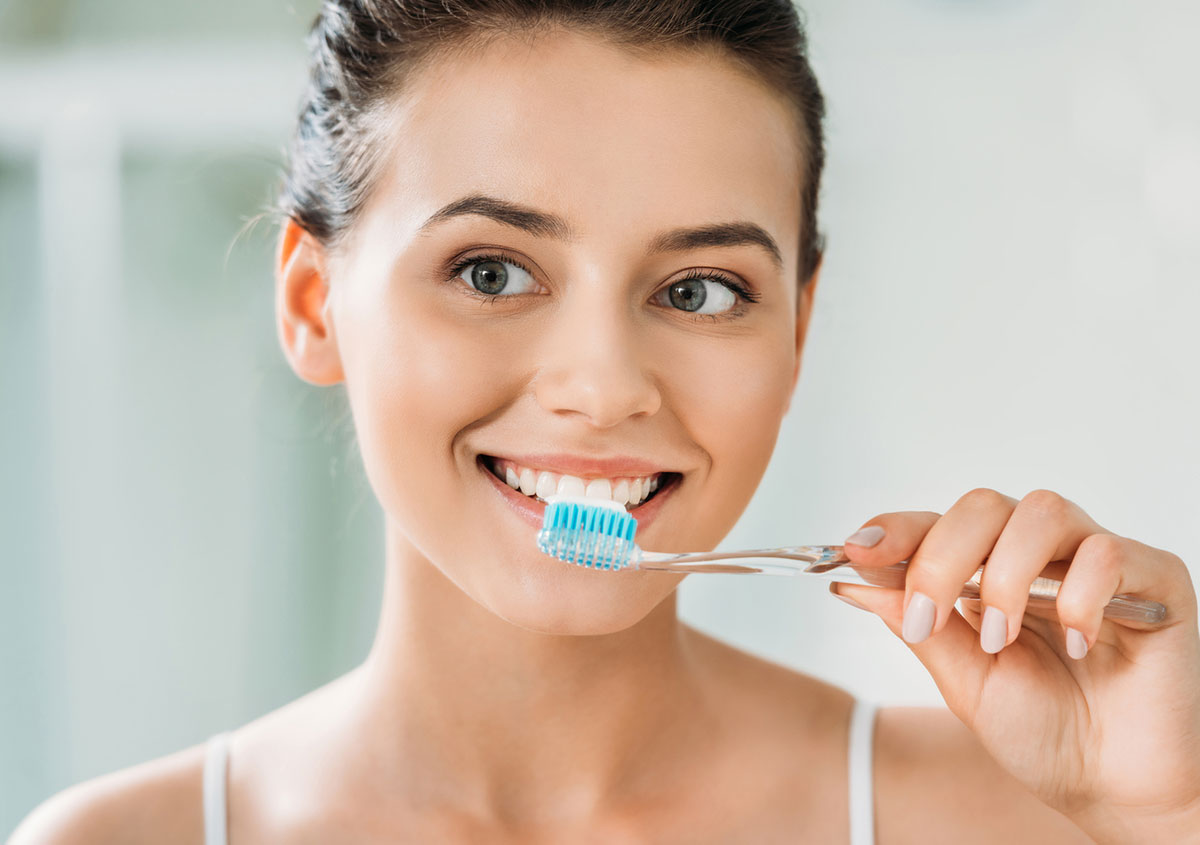How Poor Nutrition Negatively Affects Oral Health
We all know that a nutritious diet is important to our overall health, but did you know that it’s crucial for your oral health as well? Poor nutritional choices can create problems for your teeth and gums. Though it may sound crazy, some foods that are considered healthy for your body can actually be detrimental to your long-term dental health.

Find out more about the link between nutrition and oral health and how to choose better foods and drinks.
Why Nutrition Important to Your Dental Health
Painful and debilitating oral diseases affect millions of Americans every year. According to the CDC, 90% of adults in the United States have at least one cavity and 50% show signs of gum disease. But how can we prevent poor oral health?
There are some lifestyle choices that we can make today to help maintain a healthy smile for years to come. A balanced diet is one important preventative measure. Teeth and gums require certain nutrients to develop properly and stay strong throughout your life. Healthy foods help prevent tooth loss, infection, and gum disease.
How a Poor Diet Contributes to Tooth Decay
A poor diet is a leading risk factor for gum disease and tooth decay. You have probably heard that eating a lot of sugary foods can cause your teeth to get cavities or fall out. But there are lots of other types of foods and drinks that we should consume with caution.
For example, items with a high content of carbohydrates, starch or acid can wear down the enamel of your teeth over time. So, what foods and drinks should you avoid to improve oral health?
The Worst Foods for Your Teeth
Sugary Foods
Candy, chewing gum, suckers, gummies, taffy and cotton candy are all clear culprits. Yet, you would probably be surprised to find out that even fruit juice, energy drinks, sports drinks and cough drops usually contained refined sugar too. This substance sticks to your teeth and promotes tooth decay – a condition that can be more severe for those with poor nutrition. It’s best to avoid soft and sweet foods that stick to your teeth such as cake and candy.
Check out these 7 Steps to Reduce Your Sugar Intake.
Carbonated Drinks
The leading source of excess sugar in the diet of kids and teens is from carbonated drinks. Pop, soda, and energy drinks aren’t good for teeth because of the high sugar content. Many of these manufactured beverages also have phosphoric and citric acids which attack tooth enamel.
Starchy Foods
Though bread isn’t considered an unhealthy option, starchy foods tend to stick to and in between teeth. Foods that are high in carbohydrates can actually act like sugar in their effect on your mouth.
Citrus
Fruits, juices and wine generally contain acid. Though this isn’t considered unhealthy, exposing your teeth to high amounts of acid can erode enamel over time. This makes them more prone to developing cavities and decay.
Hard Foods
Avoid breaking a tooth by cutting down on extra hard foods. Chewing things like nuts and hard candies is one of the main causes of this type of dental emergency. And remember, don’t chew ice!
Caffeinated Foods & Drinks
Caffeine isn’t good for a number of reasons. It can stain teeth, cause dry mouth, and are often consumed with sugar. This includes coffee, tea, and sweets containing caffeine.
Alcohol
Regular drinking can lead to dry mouth which increases the risk for oral infections and gum disease. Excessive alcohol consumption is also a risk factor for oral cancer.
Finding the Right Balance for a Healthy Body and Teeth
Nutrition is all about finding the right balance. As we’ve seen above, even fruits and vegetables contain natural sugars and acid which can damage teeth. But this doesn’t mean that you should permanently cut them out of your diet.
This information is provided to help you make smart dietary decisions for your oral health. After all, dentists are health care professionals too. We recommend moderating the amount of potentially harmful foods and switching to healthier options whenever possible.
Balance is key, even the healthiest foods can become problematic when consumed excessively. Studies have shown that dental disease correlates to overeating as much as obesity, diabetes, and heart disease.
How to Improve Eating Habits for Healthier Teeth
What if we told you swapping that morning donut for an apple could benefit the health of your teeth? Well, it’s true, but not for the most obvious reason. Avoiding refined sugars is a good preventative measure. While opting for foods that are rich in vitamins and nutrients means taking action towards better long-term oral health. A lack of essential nutrients can deplete the entire immune system. This allows oral diseases to develop into more severe issues and progress faster.
When eating foods that contain a lot of sugar or starch, try to eat them as part of a meal rather than a snack. Your mouth produces more saliva when eating a full meal and this helps rinse the sugar and acid clear from teeth. Plus, you’re more likely to brush and floss following a meal.
It’s always important brush your teeth with fluoride toothpaste twice daily, floss every day and get regular dental care.
The Best Foods for Your Teeth
But how can I choose meals which promote good oral health? A well-balanced diet is characterized by two main features: variety and moderation. Stick with the five major foods groups and forget fad diets, as they can lead to vitamin and mineral deficiencies.
- Foods high in calcium – Cheese, yogurt, leafy greens, and almonds help to protect and rebuild tooth enamel.
- Foods that are rich in protein – Meat, poultry, and fish provide your body with minerals that are crucial for developing and maintaining strong teeth.
- Fruits and vegetables – They work hard to protect teeth from decay by neutralizing acids and reducing food particles on your teeth.
- Water – For the best drink choice, water always wins. Not only does it naturally detox your body, but unfiltered water contains fluoride, which makes it the most tooth-friendly beverage out there!
Maintaining a well-balanced diet rich in vitamins and minerals not only improves your overall health, but it is essential in preventing oral diseases. If you are not sure about how your diet may be affecting your oral health, consult your dental health professional for help.
Find out more about the Correlation Between Good Dental Health and Living Longer.
Quality Dental Care is Good for Your Health
The team of professionals at Briglia Dental Group cares about your overall health. Schedule an appointment for a regular cleaning and to get an oral health exam. We’d be happy to provide more dental tips and suggestions. Contact Briglia Dental Group today by calling (610) 615 0160
Share this Article
Back to Blog Page





